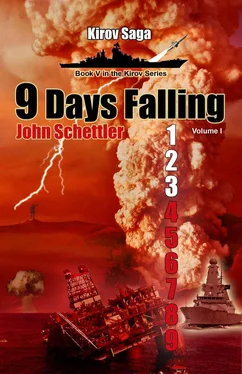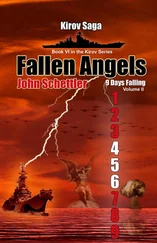In the fell clutch of circumstance
I have not winced nor cried aloud.
Under the bludgeonings of chance
My head is bloody, but unbowed.
Beyond this place of wrath and tears
Looms but the Horror of the shade,
And yet the menace of the years
Finds, and shall find, me unafraid.
It matters not how strait the gate,
How charged with punishments the scroll,
I am the master of my fate:
I am the captain of my soul.”
~ William Ernest Henley,
Invictus
The SovietNorth Pacific Fleet had been very busy in recent days. Molotov had delivered the bad news to the Japanese Ambassador the previous week—the Soviet Union had declared war on Japan and would immediately launch offensive operations against Japanese held territory. One such operation was taking place in the Northern Kurile Islands where a small Soviet flotilla under Captain of the 1st Rank Dmitri Ponomarev had helped gather offensive forces from the Kamchatka Peninsula for transport to the northernmost island in the Kurile chain, Shumshu.
The landings would be risky, even if Japan was at the end of her tether in this war. They had owned and occupied the Kuriles since 1875, and their 91st Division was garrisoning the island and its small naval base commanding the northernmost Kurile Strait. The Japanese knew the ground well, and were prepared to fight, even if they did not expect the invasion that was coming. By contrast, the Soviet force dispatched to secure the island was woefully short in sea assets and particularly in sea based firepower.
The commander of the overall landings, General Gnechko, was gnashing his teeth trying to figure a way to get adequate artillery support to suppress the Japanese coastal guns and machine gun bunkers. He hit on the idea of trying to use the four 130-mm (5.1 inch) guns on the southern tip of the Kamchatka Peninsula, but they would have to fire twelve kilometers across the strait and coordinating them accurately would be difficult. At sea he had a rag-tag collection of trawlers and patrol boats, the largest being the minesweeper Okhotsk , with a single 130mm gun, and a couple patrol ships, Dzerzhinski and Kirov , with three smaller 4 inch guns each.
“How am I supposed to force a landing deep enough and secure enough to get our own artillery and mortars ashore,” Gnetchko complained. “We’ll be lucky if our ships can even keep station against the fast moving currents in this strait. It’s so foggy that they’ll likely collide with one another, or run aground, if they try to move in close enough to offer any fire support. And without them we have nothing. Do you think planes can fly in this? We have no air cover, and virtually no naval assets here to speak of. If the Japanese attack the landing in force they could roll us into the sea in a few hours.”
“We’ll have good naval infantry in the first wave,” said Colonel Yeremenko. “A thousand men will land within the hour. I’ll lead them in myself. The fog may also work to our advantage, General. I think the Japanese will be completely surprised. You’ll see.”
“Yes, I suppose we will,” said Gnetchko, still somewhat disheartened. “We must get the naval base and establish a bridgehead in three hours. Either that or this will be the last Japanese victory in this damn war, and the first amphibious operation to fail against them. How will that look in the history books, eh? The Americans kick the Japanese ass across two thousand miles of the Pacific. Now we get in it at the eleventh hour and we can’t even take this stinking little island!”
The Russian troops would be going ashore in new Lend-Lease Landing Craft, transferred to the Russians by the US for just this purpose in Operation Hula a few weeks ago. Now the LCIs were loaded with infantry, their stubby bows pointed landward, the low growl of their engines muted in the cold morning fog. Yeremenko tipped his hat to the General and departed to join them.
An hour later he was ashore and leading detachments of Marines to attack the naval base site. The Japanese were taken completely by surprise, as he had hoped, and the facilities were quickly secured. Now the Marines were moving out beyond the base, up a gentle slope to move on the coastal batteries sited on higher ground.
The operation was a few days ahead of schedule, and appeared to be going well until the Japanese decided to fight. News of imminent surrender aside, they had 8500 men on the island and several companies of light tanks. The Japanese commander, Lieutenant General Tsusumi Fusaki, decided to use them. Here were a thousand Russian Marines, with more infantry lugubriously wading ashore behind them, but slow to come. The Russian advantage of surprise was slipping away as the startled Japanese realized what was happening and began to organize their defenses. True to form, Fusaki ordered an immediate counterattack.
Yeremenko heard the first sharp bark of Japanese machine guns up ahead coming from a string of bunkers linked together by a trench line. He knew he had to take it quickly by storm, or he would get bogged down here and his men would be cut to pieces. This was where the missing artillery and naval gun support would be most keenly felt. If he could just get those MG bunkers.
“Come on!” he shouted, waving his arm to lead the attack. “With a hearty “urah!” the Marines were running up the hill, like ghosts in the fog. Another group was mustered to rush the bigger Japanese naval shore batteries on Cape Kokutan. Once the fog lifted the guns would be able to pound the Russian flotilla if they were not quickly silenced. The Marines charged bravely ahead, but the machine guns were taking a heavy toll.
The detachment on the cape pressed doggedly forward, but with the shore battery finally in sight they soon saw it was also defended by a full battalion of Japanese infantry. Yeremenko got the bad news, cursing under his breath. “You there!” he yelled at a passing radio man. “Give me that!”
The Colonel cranked up the radio and dialed to his designated band to try and contact the offshore flotilla. “Land Force to Dzerzhinski …Land Force to Kirov —Where are you? Come in Kirov . We need your gunnery support! Land force to Okhotsk . Ponomarev Where are your ships? We need you!”
A corporal ran up, his eyes wide as he reported. “Comrade Colonel! They are mounting a counterattack—and they have tanks!”
“Shit!” It was all Yeremenko could say. He handed the radio off and told the radioman to keep trying to raise the naval flotilla and get some fire support. Then he grabbed a Gunnery Sergeant and two reserve squads and ran to confront the Japanese. They were coming down from the higher ground, with clusters of riflemen behind twenty light tanks.
“RPGs!” Yeremenko shouted. “Get the AT Rifles deployed!” His Marines did not yet have heavy weapons support, and there was virtually no artillery landed yet, and only a few mortars. Yet the Russians fought bravely. Teams of two and three men would deploy the old Simonov PTRS Anti-Tank Rifles and light machine guns to begin putting ranged fire on the advancing tanks. Then Marines would rush to attack with RPG-43 AT grenades. Many were shot down by the chattering machine guns but, one by one, they were getting the tanks. Fifteen of the twenty had been put out of action, some stopped only by an AT rifle hit that broke their forward tracks and rendered them unable to move. The Japanese attack was repulsed, but at a great cost.
They had been ashore four hours, but now the Japanese were beginning to open up with shore batteries, and tall geysers of seawater were seen rising through the slowly lifting fog off the harbor. Yeremenko began calling for support from the four 130mm guns across the strait, and they began to put down desultory fire in reply. Damn, he thought, what’s holding up our artillery? We’re taking heavy casualties and the enemy is already massing for a second counterattack. Gnechko may have been correct.
Читать дальше












